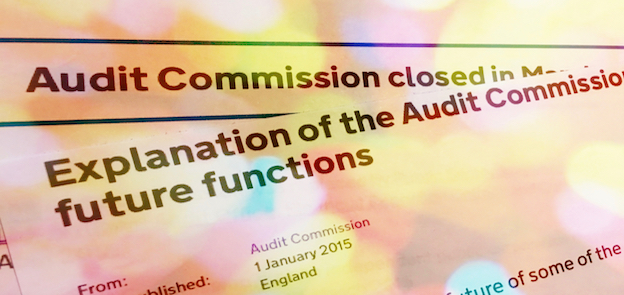Most local authorities will opt for using Public Sector Audit Appointments, the successor body to the Audit Commission. Graham Liddell writes in losing the commission local government lost an important ally but also gained freedom over governance while at the same time its demise flooded other public sector organisations with talented staff.
I loved working for the Audit Commission and was proud of the work we did. Like most of my colleagues I viewed its abolition as a terrible decision and was aghast at how the national press seemed to push outrageous stories of the commission’s largess. The low point for me was the representation of training workshops on accounting standards that I had organised as “days at the races”. The training was good, but not that good.
But the commission has gone and now local authorities are taking over the commission’s final and most fundamental role: to appoint their external auditors.
I doubt that many will take advantage of this particular new found freedom and most will opt in to the national scheme of auditor appointments, run by Public Sector Audit Appointments (PSAA). The PSAA strategy for appointing auditors appears to be remarkably similar to that of the Audit Commission, and one starts to wonder what all the fuss was about.
Big boots
In essence, the commission was abolished because it was too big for its boots. It defined best practice, determined the scope of the audit and inspection regime, appointed and regulated auditors (including its own in-house team) and set fees. An overblown quango, the argument went, was undermining local decision making by forcing democratically elected local authorities into a straitjacket dressed up as “best practice”.
Much to my surprise, and in the cold light of day, I find myself agreeing with much of this analysis.
- Local authorities need high standards of governance to deliver their objectives and manage their risks. But good governance isn’t achieved by implementing a process just because an auditor (internal or external) says that you should do so. Whenever an action is explained as “an audit requirement” alarm bells should ring. Effective governance comes from a belief and commitment that good governance is what an organisation needs to do. Controls imposed by outside agencies rarely work. The abolition of the Audit Commission has given local authorities the permission and opportunity to take more meaningful steps towards good governance. My judgement is that whilst some may not take advantage of this opportunity, most have, at least, started the journey.
- And aspects of the commission’s work were becoming less relevant. We were at the start of the era of big data and a greater appreciation of the power of data analytics. What business did the commission have in spending public money to determine the content and presentation of local authority information? The need for interminable audits of PIs and the ill-fated One Place was over.
Loss of an ally, though there are benefits
What we have lost, however, is an ally: the commission would have been an authoritative voice pitching in on the side of local government. The commission would have been the first to provide evidence based research into the impact of reduced funding and the increasing cost of demand led services. It might even have referred to local authorities being in a financial straitjacket. But we are not without such voices. There is the Local Government Association and the National Audit Office. We even see the accountancy firms, now swelled with ex-commission employees, taking up the challenge.
And that has brought home to me another unintended and positive consequence of the abolition. I was privileged to work with a range of talented and dedicated people at the commission. When I look at the contribution they are making now, I do wonder whether they are doing more for the greater good than if they had pursued their careers in the Audit Commission. Some are employed by local authorities or elsewhere in the public sector; others have taken their skills and knowledge into the firms or academia. The Channel Islands and places further afield (the Caribbean, Australia, New Zealand) have all benefited from the Audit Commission diaspora. Before Christmas I met up with one ex-colleague who has joined a medium-sized independent firm of accountants and has successfully registered them as a potential provider of external audit to local authorities. So, even if local authorities don’t see much change in the way auditors are appointed, they might see changes in the firms providing the audit. The impact of this pool of talent should not be underestimated.
So, putting aside my own personal journey, it seems to me that the Audit Commission’s abolition has resulted in:
- minimal changes to the way external auditors are appointed and a possible widening of the firms who provide external audit
- time and effort no longer being spent by local authorities slavishly following Audit Commission “requirements”
- more freedom for local authorities to develop strong and effective governance arrangements that they can believe in
- the loss of any ally to speak up for local government and the emergence of others
- releasing a pool of talent from which local authorities and the wider public sector can draw.
Are we better off without the Audit Commission?
Yes.
Graham Liddell is head of Internal Audit at Brighton & Hove City Council.












